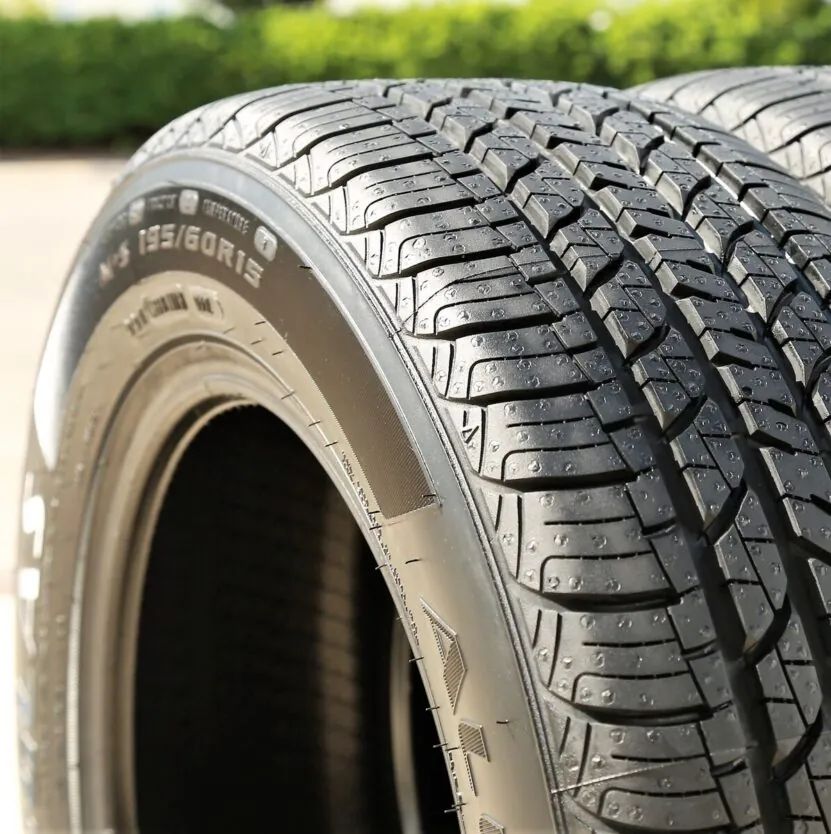
Share Post:
Looking into new tires often comes down to one question: are they worth the money? Douglas Tires, sold exclusively at Walmart, definitely turn heads for their low price, especially when many of us are trying to keep car expenses reasonable. But is their lower cost enough to make up for what they might lack in performance?
In this review, I’ll walk you through what I’ve found about Douglas Tires for 2025. I’m talking real-world performance, tread life, and handling so you can see if these budget-friendly tires hold up. We’ll break down the pros and cons, and by the end, you’ll know if Douglas Tires are actually a smart choice for your car or if you’d be better off looking elsewhere.
Table of Contents
ToggleWho Makes Douglas Tires, and Why Are They So Cheap?
| Specification | Douglas All-Season | Douglas Performance |
|---|---|---|
| Manufacturer | Goodyear | Goodyear |
| Available Sizes | 13″ to 18″ | 15″ to 18″ |
| Price Range (Per Tire) | $50 – $115 | $65 – $110 |
| Speed Rating | H (Up to 130 mph) | V (Up to 149 mph) |
| Treadwear Rating | 420 | 420 |
| Warranty | 45,000 miles | 45,000 miles |
| Traction Rating | A | A |
| Temperature Rating | B | A |
Walmart keeps costs down by making Douglas a “house brand,” meaning these tires are made for them alone. With a simpler design and cheaper materials, they’re built for basic driving needs, not for high performance. Don’t expect Michelin-level materials here. You’re getting something that does the job without breaking the bank.
Douglas All-Season tires are reliable for standard city or highway driving. For those who want better handling, the Performance version has a slightly higher speed rating and better temperature rating. Either way, Douglas tires are about covering your basic driving needs at a low price, so they’re worth checking out if you’re keeping things simple.
If you are looking for a new tire as you are using a spare one at the moment, be sure to learn how long can you drive with a spare tire.
Douglas All-Season Tires – What to Expect?
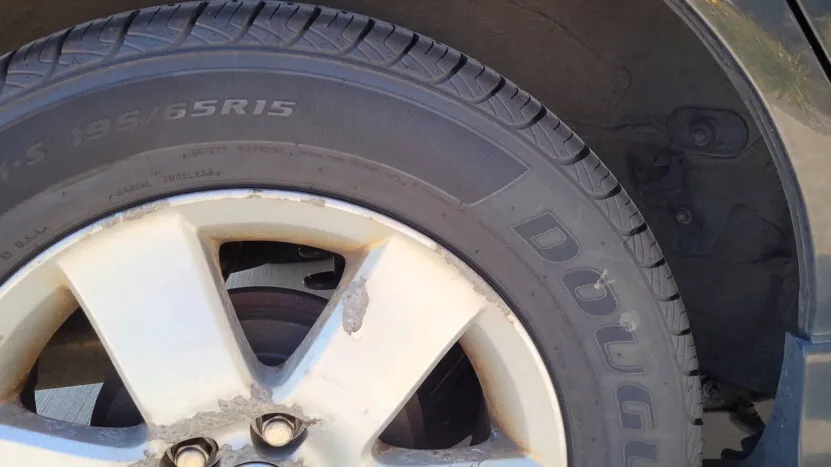
These tires aren’t built for tearing up the road, but they’re solid enough for daily commuting, errands, and regular highway trips.
- Dry Performance: For a budget tire, Douglas All-Season handles well on dry roads. Traction is steady, and they manage daily driving without any surprises. Don’t expect ultra-sharp handling, but for regular driving, they hold up fine.
- Wet Performance: In the rain, they do okay, but they’re not miracle workers. They’ve got grooves that help push water out from under the tire to cut down on hydroplaning, which is a plus. Just don’t expect sports-car-level grip if it’s pouring out.
- Snow and Ice: If you’re dealing with light snow now and then, these can work, but for heavy snow or icy roads? Look elsewhere. The All-Season version doesn’t have the grip for harsh winter weather, so if you live up north, you might want a dedicated winter tire.
- Noise Levels: Compared to higher-end tires, Douglas All-Season tires stay pretty quiet for a while, though you might notice they get louder as they wear down. It’s not a huge deal for most people, but something to keep in mind if you’re after a super quiet ride.
- Tread Life and Warranty: You’re looking at a 45,000-mile warranty. For the price, that’s fair, but to hit that lifespan, make sure you’re rotating and balancing them. Skip the maintenance, and they’ll wear faster.
- Who They’re For: If you’re someone who drives mostly around town or commutes on the highway without dealing with extreme weather, these are a cost-effective option. Just don’t expect them to perform like higher-end tires in harsh conditions.
Pros and Cons
| Pros | Cons |
|---|---|
| Affordable pricing, ideal for budget replacements | Limited traction in snow and ice |
| Decent grip on dry and mildly wet roads | Wears down faster without regular maintenance |
| Low noise when new | Noise increases as tires wear |
Douglas Performance Tires – Are They Worth the Extra Money?
Douglas Performance tires offer a bit more than the All-Season line for drivers who want sharper handling, especially in dry conditions. While you won’t mistake them for top-end performance tires, they’re a step up for anyone looking for better handling without shelling out big bucks.
- Dry Grip and Handling: The Douglas Performance tires hold up well on dry roads, making them a good choice if you like a bit more responsiveness. These tires offer decent stability during quick maneuvers and cornering, thanks to their tread design.
- Wet Performance: While they perform decently in rain, they’re not ideal for heavy downpours. They offer some hydroplaning resistance but might lack the same wet traction as higher-end performance tires.
- Snow and Ice: Like the All-Season model, these aren’t built for winter driving. They’re better suited for milder climates where snow isn’t a regular concern. If you’re in a colder region, plan on swapping them out when winter rolls around.
- Noise Levels: Expect similar noise levels as the All-Season model. They’re relatively quiet when new, but the noise can get noticeable as they wear down. Not a dealbreaker for most, but worth knowing if a quiet cabin is important to you.
- Tread Life and Warranty: The Performance tires come with the same 45,000-mile warranty as the All-Season, but tread life can depend a lot on driving style. If you drive aggressively, you might notice faster wear.
- Who They’re For: Douglas Performance tires work well for city and highway drivers who like a little more control in their handling but don’t need top-tier performance. They’re best for daily driving in mild to moderate climates without severe weather.
Pros and Cons
| Pros | Cons |
|---|---|
| Better handling and cornering on dry roads | Not suitable for snow or ice |
| Asymmetric tread pattern for improved stability | Wet traction could be better in heavy rain |
| Moderately quiet when new | Noise increases with wear |
Customer Reviews – Real Talk from Douglas Tire Owners
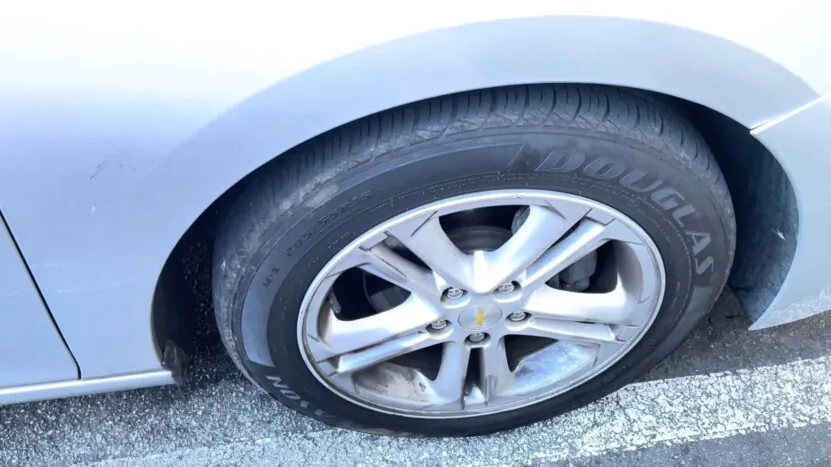
To get a straight answer on Douglas Tires, you have to look at what real drivers are saying about them. Reviews are all over the place, and the experience seems to depend a lot on how and where people are using these tires.
Common Positives
Most Douglas Tire owners appreciate the budget-friendly price. For a lot of people, the low cost is the main reason they picked these tires in the first place. They’re ideal for everyday driving if you just need basic functionality and don’t want to spend a fortune on replacements.
Drivers who stick to city roads and avoid severe weather report that the tires hold up well enough for casual driving.
Here is one of the reviews I found.
“I bought Douglas All-Season tires for my daily commute, and they’re fine on dry roads. Not great in heavy rain, but for the price, I can’t complain.”
Drawbacks People Mention
Complaints tend to focus on durability and wet-weather performance. Some users mention that the tires wear down faster than expected, especially if they skip regular rotations or maintenance.
Wet and snowy conditions are where the reviews get rough. Multiple drivers report that these tires struggle with traction on wet roads, so if you’re in a rainy or snowy climate, these might not be your best bet. Others say the road noise ramps up as the tires wear, making longer drives less comfortable over time.
Here is a negative review I found useful.
“These tires were okay at first, but after about 20,000 miles, the noise became an issue. They’re cheap for a reason.”
So, Should We Buy Douglas Tires, or Is It Better to Look at Alternatives?
Whether or not Douglas Tires are a good buy really depends on what you’re looking for and how you drive. If budget is your top priority, and you mainly drive in town or on highways in mild conditions, Douglas Tires are a solid pick.
They get the job done without costing much, and for some drivers, that’s enough. However, if you’re after durability, top-notch wet traction, or long road trips in all kinds of weather, Douglas might leave you wanting more.
For light daily driving, they’re worth a look, especially for smaller sedans, coupes, or compact SUVs.
But if you’re in a region that sees heavy rain or snow, or you want a tire that’ll stay quiet and perform well over years of use, you might want to consider other brands that offer more durability and reliability for a bit more money.
Best Alternatives to Douglas Tires
If you’re thinking about other budget-friendly options, here are a few reliable alternatives to consider. Each of these brands has its own pros and cons, but they generally offer more durability, better wet traction, or a quieter ride than Douglas, without costing too much.
1. Laufenn Tires
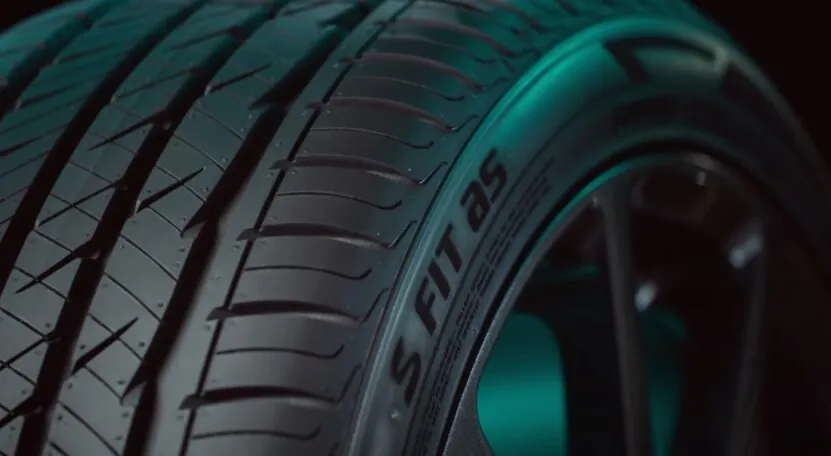
Laufenn tires are budget-friendly but tend to offer better all-around performance than Douglas in various conditions.
Known for a quieter ride and better durability, Laufenn’s lineup includes options for regular and light off-road driving, making it a good choice if you need something more versatile.
2. Ironman Tires
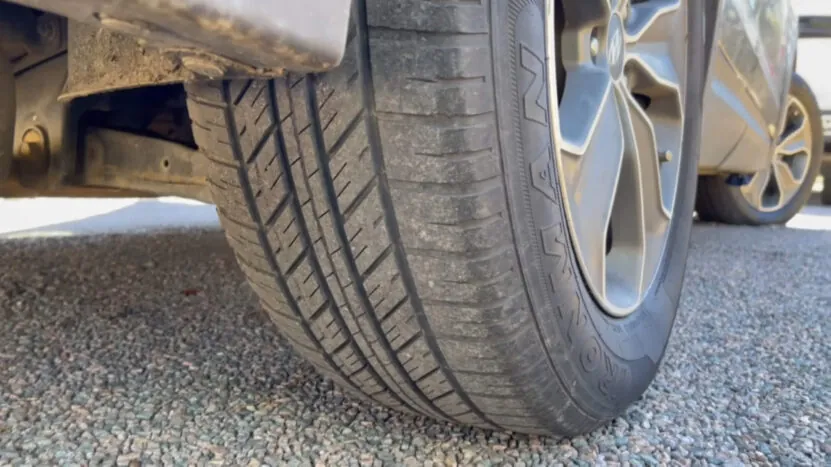
Another affordable option, Ironman tires perform well on dry and wet roads, and they usually have a longer tread life than Douglas. Ironman’s all-season options are solid for year-round driving, especially if you rotate them regularly.
For budget-conscious drivers wanting better wet performance, Ironman is a decent pick.
3. Hankook Kinergy ST H735
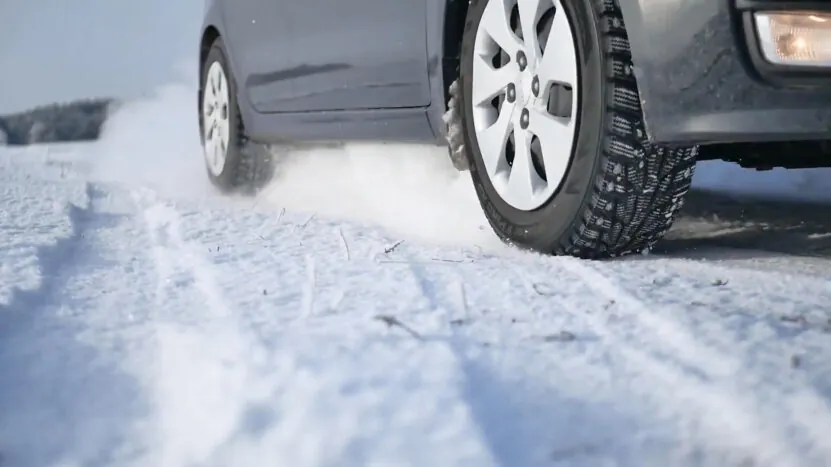
Hankook’s Kinergy ST H735 tires are a bit pricier than Douglas but offer better tread life and all-weather handling. These tires are known for strong wet traction and provide a quieter ride overall.
They also come with a longer warranty, making them a good value if you’re okay spending a bit more for quality.
4. Kumho Solus TA11
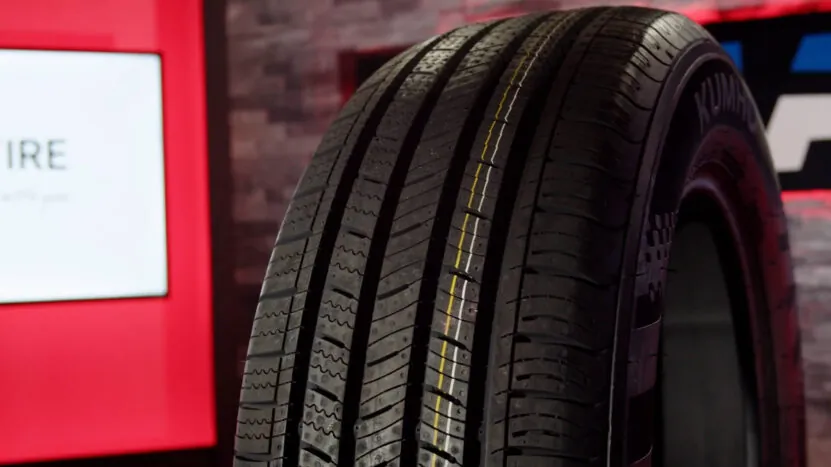
Kumho Solus TA11 tires fall into the affordable range but are well-regarded for their durability and comfort. They handle wet and dry conditions reliably, and you’ll likely experience less noise over time.
For a budget tire, they hold up well across a range of conditions, making them a smart alternative to Douglas if you want something a bit more balanced.
FAQs
Are Douglas tires made in the USA?
Yes, Douglas tires are manufactured in the USA. Goodyear produces them for Walmart, and they’re built in specific plants in the country, which adds to their affordability and availability.
How long do Douglas tires typically last?
Douglas tires come with a 45,000-mile treadwear warranty, but actual lifespan can vary based on driving habits, road conditions, and maintenance. With proper care, you can expect them to reach around 40,000 to 45,000 miles, but aggressive driving or neglecting rotations can shorten their life.
Can you get Douglas tires installed anywhere besides Walmart?
While Douglas tires are only sold through Walmart, you can technically get them installed at any tire shop or auto center. However, for warranty claims, having them installed at Walmart is often recommended to streamline the process.
Are Douglas tires noisy?
Douglas tires generally start off relatively quiet, especially on smooth surfaces, but they can become louder as they wear. The noise increase over time is a common report from users, so they may not be the best choice if you prioritize a quiet ride for long highway trips.
Do Douglas tires perform well in the winter?
Douglas tires, including both the All-Season and Performance models, aren’t built for harsh winter conditions. They handle light snow moderately well but don’t have the traction needed for icy roads or heavy snow. Consider winter tires if you live in areas with severe winters.
Do Douglas tires have good fuel efficiency?
Douglas tires offer decent fuel efficiency, but they aren’t specifically designed for it. Some alternatives might provide better mileage due to optimized tread designs, so if fuel economy is a primary concern, looking at other options could be beneficial.
Can I use Douglas tires for off-roading?
Douglas tires aren’t intended for off-road use. They’re built for paved city roads and highways, so they lack the tread depth and sidewall strength needed for rough or unpaved terrain. Off-road driving could cause faster wear or even damage the tires.
Final Thoughts
Douglas Tires may not top the charts in performance or durability, but they make a lot of sense for certain drivers. If your priorities are affordability and getting a simple tire to handle daily driving, these could be a smart buy. They cover the basics, and for some people, that’s all that’s needed. However, if you want something longer-lasting or need reliable traction in poor weather, Douglas might not be your best bet.
Their real value lies in being an accessible, budget-friendly option with dependable support from Walmart, so for drivers who just want to get from point A to point B without overpaying, Douglas Tires get the job done.
Related Posts:











